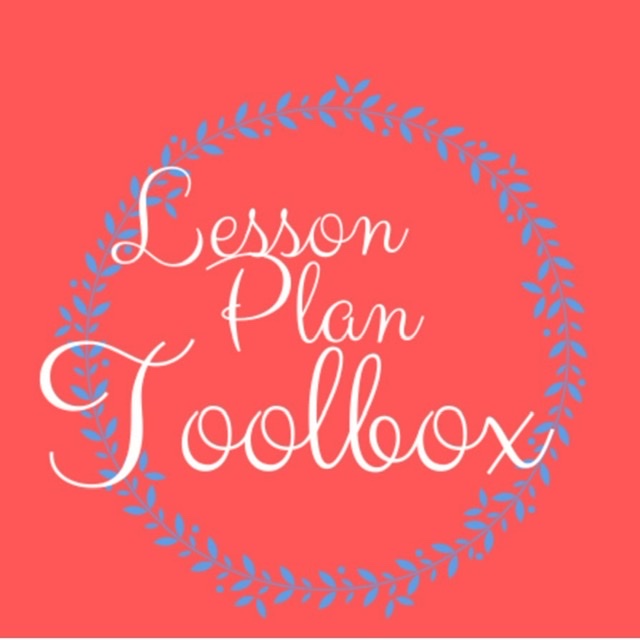From Frustration to Exhaustion: The Stages of Teacher Burnout

Teacher burnout is a real phenomenon that plagues educators everywhere. It is important to be aware of the different stages of teacher burnout so that you can identify when you or a colleague are experiencing it. The stages of teacher burnout are frustration, apathy, depression, cynicism, and finally, exhaustion. Each stage is characterized by different symptoms and behaviors. And yes, even though it is October teacher burnout is already setting in for many teachers!
Defining Teacher Burnout:
Teacher burnout is a state of physical, emotional, and mental exhaustion that is caused by excessive and prolonged stress. It occurs when teachers feel overwhelmed by the demands of their job and are no longer able to give their best to their students. Teacher burnout can lead to absenteeism, lower job satisfaction, and even resignation.
The causes of teacher burnout are numerous and varied. They include heavy workloads, unrealistic expectations, lack of autonomy, inadequate resources, poor working conditions, and insufficient pay. These factors can all contribute to the development of burnout in teachers.

There are several ways to prevent or reduce teacher burnout. These include providing support from administrators and colleagues, developing positive school culture, ensuring that teachers have adequate time for planning and preparation, providing professional development opportunities, and offering competitive salaries.
Before we get ahead of ourselves, let’s dive into what each phase of teacher burnout can look like keeping in mind that this is just the tip of the iceberg.
Frustration: The First Stage of Teacher Burnout
In the early stages of teacher burnout, educators may feel increasing levels of frustration. This can be caused by a number of factors, including feeling like they are not making a difference in their students' lives, or that their work is not being appreciated. As frustration builds, it can lead to feelings of hopelessness and despair. If these feelings are not addressed, they can lead to the second stage of burnout: apathy.

Apathy: The Second Stage of Teacher Burnout
When frustration turns to apathy, it may be a sign that you've reached the burnout stage. Apathy is a severe lack of motivation to bring your unique personality to teaching. You lack any type of rapport with your students and simply see them as bodies in seats. If you're experiencing apathy, it's important to take some time to assess your situation and make changes to improve your well-being.
When frustration turns to apathy, it's time for a change. That's why we've compiled a list of the signs that you're experiencing apathy in your teaching career:
- You dread going to work each day.
- You feel like you're just going through the motions, and not really connecting with your students.
- You don't feel challenged or engaged by your work anymore.
- You find yourself constantly counting down the days until summer break or winter break.
Apathy is a serious mental state to be in especially this early in the school year. Be honest with yourself and your family and decide what your next move should be in regard to your career.
Depression: The Third Stage of Teacher Burnout
Nearly one in five teachers report feeling depressed, according to a new study.
The study, which was conducted by the American Federation of Teachers and the University of Phoenix, found that 18 percent of teachers surveyed said they were currently experiencing depression. This is a significant increase from the 10 percent of teachers who reported feeling depressed in a similar survey conducted in 2013.

The new study also found that teachers are more likely to experience depression than members of the general population. In fact, nearly one in three teachers said they had experienced depression at some point in their career.
So what's behind this surge in teacher depression? Experts say there are a number of factors, including increased workloads, inadequate resources, and crumbling working conditions.
"Teachers are working longer hours for less pay and under increasingly difficult conditions," said AFT President Randi Weingarten.

Many teachers are finding themselves turning to medications to help them get through the school year. Somehow, we as a society are turning a blind eye to the severity of working conditions for teachers.
Cynicism: The Fourth Stage of Teacher Burnout
Cynicism is often referred to as the final stage of teacher burnout. It is characterized by a negative, critical outlook toward education and teaching in general. Teachers experiencing cynicism often feel that they are powerless to make any positive change in the education system. They may also believe that their efforts are futile and that students are not really learning anything. Cynicism can lead to feelings of hopelessness and despair, and it can be very difficult to overcome.
Cynicism not only has a drastic impact on you as the teacher but also on your students. They thrive off the energy you bring into the classroom day and in day out. By feeling desperate and hopeless, your students are going to know that you are simply going through the motions of teaching without concern for creating engaging lessons.

Exhaustion: The Major Consequence
This is when teachers feel like they are running on empty and can no longer give their students the quality of education they deserve. They may feel like they are working all the time and not getting any relief. This can lead to physical and mental health problems, as well as a decrease in job satisfaction. If you are feeling exhausted, it is important to take some time for yourself and to ask for help from your colleagues or supervisor. Don’t ever be afraid to take a mental health day because they are just as important as physical sick days.
Exhaustion: The Physical Consequences
Teacher burnout is a real and serious problem. The physical consequences of burnout can be both short- and long-term and can include everything from headaches and insomnia to heart disease and cancer. The emotional consequences can be just as devastating, leading to depression and anxiety. If you're a teacher who is feeling burned out, it's important to seek help before it's too late.
Conclusion: Steps to Prevent and Recover from Burnout
If you’re already experiencing teacher burnout, it’s important to take steps to recover. This includes getting plenty of rest, eating a healthy diet, and exercising regularly. You may also want to seek professional help if you’re struggling to cope with burnout on your own. With the right support, you can overcome burnout and get back on track.
I Know ALL of This to be True Because…
I know all of this to be true because I was this teacher. After 19 years in education, I took a position where I felt like I was walking on eggshells every single day with the administration. No matter how much I documented or raised questions, it was never enough, and students were always sent back to class after a few short minutes basically giving me a break, but never addressing the issues at hand.
I have never felt so trapped or stuck in all of my years in education including my years serving as an assistant principal. I began to think something was wrong with me and questioned if I ever was a good teacher. I went inside my head and kept blaming myself for what was happening.
My life quickly became getting up at 5:45 am so I could leave the house by 6:30 am to arrive at school by 7:00 am. It was only September and I was so mentally and physically exhausted that I quit working out, quit watching tv, and quit socializing on the weekends. I went to school, came home, and had to make phone calls, grade, and prepare for the next day.

Finally, I hit my breaking point. Picture this: It was a dark and gloomy Wednesday morning. Rain began to pour down onto the roof of the car. I pulled into the parking lot and parked my car in my usual spot, but I couldn’t get myself to get out of the car! My body froze. Tears came flooding down my cheeks flowing like a river. The clock kept creeping closer and closer to 7:00 am. I knew I had to get inside the building or my principal would be in my classroom red in the face giving me a solid what for! Then it happened…
It was at this moment that I decided no teacher would or should ever have to experience this type of life. This wasn’t living. This was a career taking over my life to the point of depression and cynism. I loved teaching and I loved my students, but I couldn’t find love this year and I kept blaming myself for not doing enough which of course made things worse. No. Not anymore and if I can help it, no other teacher will go through this experience EVER AGAIN.
So what’s the answer?
The answer came in the form of a vision called Lesson Plan Toolbox. I help K-3 teachers to avoid burnout by serving as their virtual teacher assistant. They tell me what they need and I get them the answers. If teachers need lesson ideas, then I send them ideas. If they need help communicating with parents, I offer suggestions. If they are working on classroom management, they receive a video to help guide them. If they just need an ear to listen because their day was atrocious, I'm there. Literally, however, I can support primary teachers I do and it is truly amazing.
So if you are in a similar situation or know someone who is, then reach out to me. There is always help available, but you often do have to make the first move and ask. Let go of the shame and feelings of failure because this is NOT your fault. This is a system that needs to be revamped to meet the needs of 21st-century learners rather than staying stuck in the 20th-century. Well, education system, meet Lesson Plan Toolbox, the powerhouse that will give educators their lives back!
Did you know...
We are so passionate about helping primary teachers that we are now inviting teachers to simply write a reflection on this blog post, take a picture, and send it to us on Instagram or via email ([email protected]).
Once you do that, then you will receive a 1-hour professional development certificate for FREE!
If you enjoyed this post...
If you enjoyed this post, then you'll want to read about why teaching has become so hard.
If you are having trouble figuring out how to balance your time at school and at home, then be sure to grab your copy of the Lesson Plan Toolbox Weekly Planner. Not only will this help you manage your time, but it is FREE too!

Reminder...
We continue to support K-3 teachers, both new teachers, and veterans, on their journeys. If you are interested in earning the EASIEST PD hours you will ever learn, then be sure to check this out. Feel free to contact us with any thoughts or questions. You can earn 60 HOURS in 1 year! (Grant opportunities are available!)
Looking for an extra hand this school year managing that endless “Things To Do List”? My Virtual Teacher Assistant services are exactly what you need to get yourself on track and save HOURS in your week! Click here to book a call that will turn your life around!
“This is an awesome opportunity for a new teacher or any teacher! The knowledge they will acquire is priceless. Lauren is a master teacher and her skills in the classroom are beyond imagination and dedication to young children which is unprecedented. Lauren makes the magic of learning happen.” Patricia P.
The Mission of Lesson Plan Toolbox:
Our mission at Lesson Plan Toolbox is to save K-3 teachers time and energy while providing resources and knowledge of 21st-century learning.
Until next week...
Teach~Relax~Repeat
Lauren



